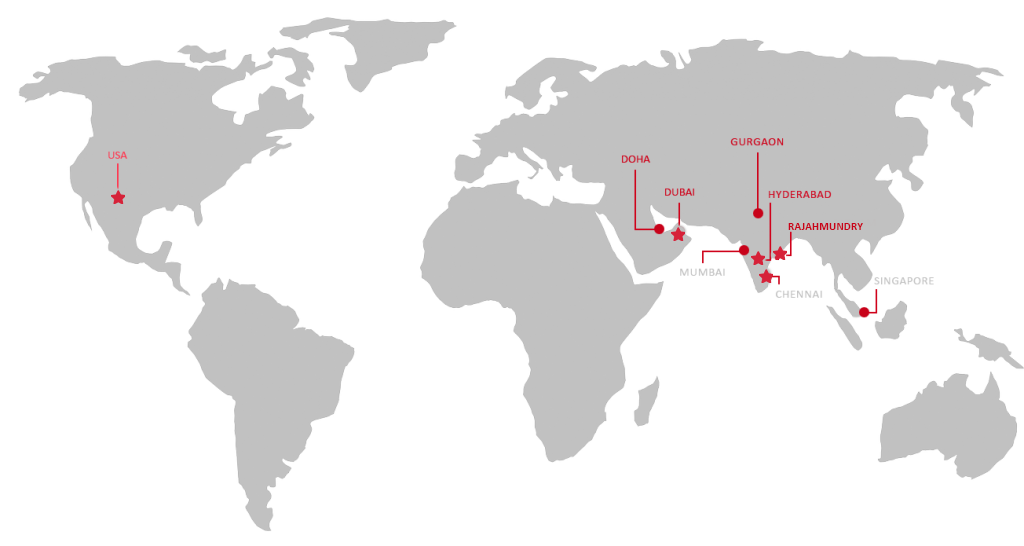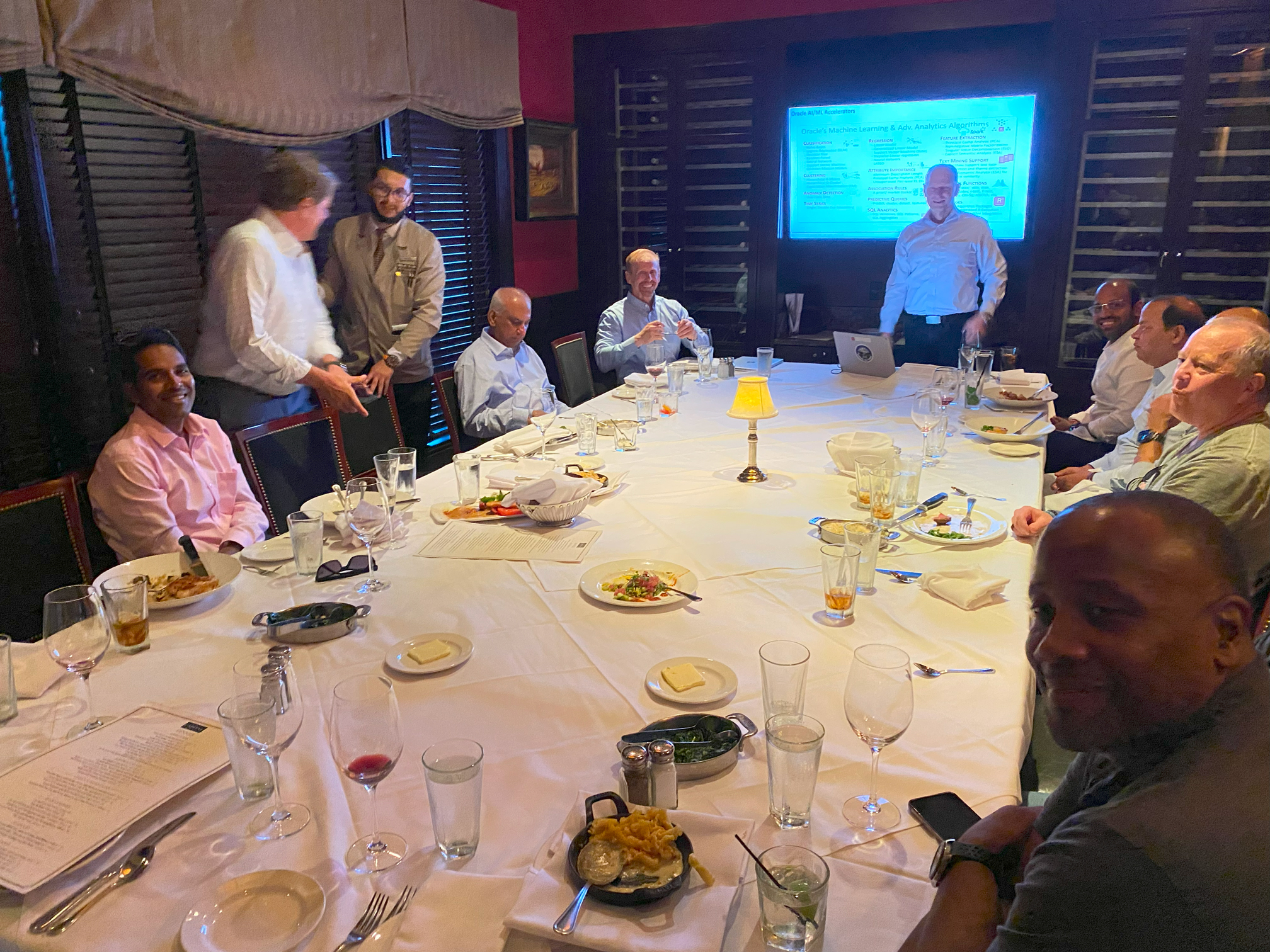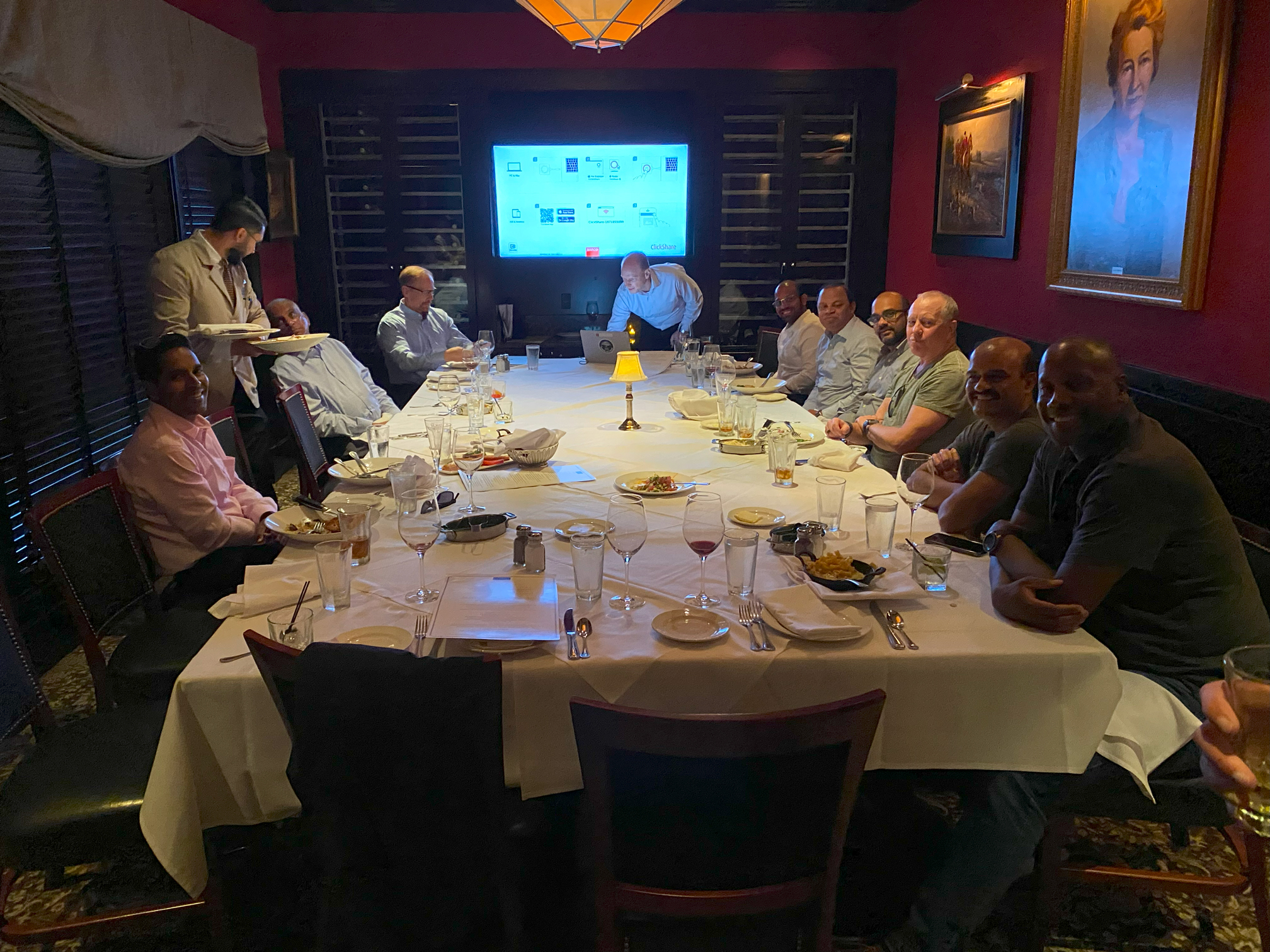The digital transformation motto backed by cloud-based business apps remains at the top of innovation edge, powering enterprises with significant automation features, processes execution, and business outcomes. One that’s highly dominating the cloud-native space is Oracle Fusion – a comprehensive suite of integrated solutions for diverse set of business functions such as finance, supply chain management, human resources, customer relationship management, and more.
Designed for SaaS applications, one can have access to every solution to empower your business. Moreover, the cloud-powered business suite has a modular approach, leveraging the intelligent tech stack such as artificial intelligence, automation, and machine learning with a vision to streamline business processes and enhance efficiency of entire business operations.
Thanks to its cloud-based architecture that enables scalability, flexibility, and accessibility across enterprises. The enterprises can access their business data and applications from anywhere and anytime. This cloud availability eliminates the necessity of relying on on-premises infrastructure, software, or hardware thereby reducing maintenance costs and ensuring seamless upgrades.
On a higher note, Oracle Fusion Managed Services are massive advancements in ERP evolution, providing organizations with a flexible and a unified integrated business solutions to streamline processes, promote collaboration, and ensure sustainable business growth.
Confronts While Implementing Oracle Fusion Managed Services
However, to embrace the power of Oracle Fusion, tapping into the right expertise is really crucial because the implementation of this unified solution walks you through a set of challenges. These include:

Complex Customizations & Configurations
Oracle Fusion applications come with a lot of customizations and configurations that can be defined as per specific business requirements. As the suite features a wide range of features and modules, customization and configuration processes turn out to be complex. This is where a high-level and deeper level understanding about existing infrastructure and environment, system integration, and data mapping is very crucial. Indeed, the expertise to handle all these complexities solves your puzzle of channelizing and setting up right customizations and configurations for your Oracle Fusion.
Data Integration and Transition
Another level of complexity during Oracle Fusion managed services implementation is data structuring and formatting in the existing architecture. Due to this difference, migration from existing systems to Oracle Fusion is an underlying challenge. Moreover, integration of Oracle Fusion with other systems and applications within the organization’s IT ecosystem is also a significant hurdle.
However, with careful planning and execution while considering all these functional aspects, your organization capitalizes business value when INFOLOB’s methodology is considered.
Dealing with Change Management
Implementation of Oracle Fusion deals with change in process automation, workflow executions, and organizational roles. This change management happens from top to bottom line, replacing the entire organizational hierarchy at times. Organizations must involve in the process of change, convincing internal customers on the needed transformation. The change management becomes simple when the organizations:
- Focus on employee training
- Show great business benefits for internal key stakeholders
- Take quick decisions about the change and evaluate future risks if possible
- Deal with mindsets who are not ready for change
- Everyone supports the enterprise as well, accepting digital adoption crafts excellence as a whole
Business Process Alignment
When it comes to embedding a new set of technologies and solutions for your business growth, aligning the existing processes with the best practices that Oracle Fusion offers is a crucial step to consider. Analyse the current workflows, identify gaps, and redesign the processes to completely exploit the system’s capabilities is a right-fit strategy that we implement.
System Performance and Stability
Be it planning for large-scale deployments or handling huge data volumes, keeping up the optimal performance and stability of Oracle cloud applications becomes a denouncing aspect for most enterprises. Organizations must go with a careful planning and execution, considering certified and cross-vendor Oracle Fusion to maintain high responsiveness, reduce downtime, and address performance bottlenecks.
Continuous Maintenance & Support
Once Oracle Fusion implementation goes successful, the organizations need robust and great Oracle Cloud support to address queries, gain understanding about patches and upgrades, and continuous maintenance of the cloud suite. The effective use of Oracle Fusion apps highly relies on expertise into troubleshooting, keeping systems up-to-date aligning with the infrastructure, and addressing potent risks or vulnerabilities from time to time.
User Adoption and Training
Thanks to the intuitive environment that Oracle Fusion offers that makes adoption easy for users as it’s an eminent success factor while implementing. Organizations direct and host comprehensive training programs for employees that enables them to use Oracle Fusion Cloud effectively while maximizing its potential features.
The center point for planning, collaboration, and implementation is opting for a top-down level approach which helps in navigating these challenges, assisting organizations in successfully Go-live of Oracle Fusion. The collective effort drives optimal business growth and efficiency while leveraging the Oracle Fusion capabilities.
Business Benefits with Oracle Fusion Managed Services
By enduring with these challenges and navigating the Oracle Fusion equates to greater business transformation. This happens when there is a window for relentless optimization efforts and here are the business benefits that follow:
- Scaling operational efficiency to make your enterprise stand in the competitive arena
- Possibility for continuous innovation, where proactive issue resolution fosters business continuity
- Exploring various paths to optimize and enhance the system helps your enterprise to sustain through the success journey in the long run and impressive business outcomes through Oracle Fusion implementation
- Lays a smooth foundation to standout of the competition in the complexity-driven evolving business landscape. This is easily achievable because of the latest technological advancements that Oracle Fusion is equipped with
- Entire Oracle Fusion integration deals with embedding new features, functionalities, and other best practices to sync with changing customer needs, industry trends, and regulatory requirements
Making Enterprises Agile with Oracle Fusion Managed Services
On top of implementing the Oracle-powered business apps, our teams continuously monitor and troubleshoot to detect and address quickly. Also, we ensure zero system downtime, cut-off the disruptions that may arise, and maintain high levels of system performance and stability. With our expertise, we spread the industry-leading practices with an aim to support entire business operations so that Oracle Fusion system stays reliable and efficient.
Following the sun model, our 24/7 ongoing support across the globe means to be invaluable effort, enabling our teams to detect issues in the early stages, triggering rapid responses to the unforeseen incidents, minimizing downtimes, making systems available, enhancing user experience, and optimizing performance round-the-clock. Our managed services allow enterprises to run their workloads smoothly, downsizing interruptions that affect business operations.
Final Thoughts
Partnering with Oracle Cloud service providers like INFOLOB who is in 14 years since inception of cloud technologies and one of the Top 25 Oracle Managed Premium Partner in Cloud Solutions Provider Expertise (CSPE) leverages Oracle Fusion managed services across the enterprise. Our strategic initiatives ensure your systems to be efficient and aligned with the evolving business and user needs.
For all queries, please write to:





